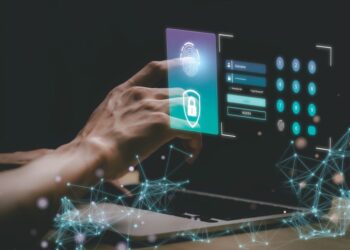In our rapidly evolving world, where nearly every aspect of daily life, commerce, and communication has a digital component, the acquisition of digital skills has moved from a desirable asset to an absolute necessity. Far beyond merely knowing how to operate a computer, digital fluency encompasses a broad spectrum of competencies that empower individuals to navigate, create, and thrive in the online sphere. From basic internet literacy to advanced data analysis and cybersecurity awareness, possessing essential digital skills is no longer a choice; it’s the bedrock for personal growth, career advancement, and full participation in contemporary society. This isn’t just about keeping up with technology; it’s about leveraging its power to enhance opportunities, foster innovation, and bridge divides in an increasingly digital-first global landscape.
The Digital Imperative

The profound shift towards digitalization across industries and everyday life means that individuals and societies without adequate digital competencies risk being left behind. The pace of technological change shows no signs of slowing, making continuous learning vital.
A. Ubiquity of Technology:
* Everyday Life: From online banking and shopping to connecting with loved ones via social media and streaming entertainment, digital platforms are integral to daily routines. Without basic digital skills, simple tasks become challenging.
* Public Services: Governments worldwide are increasingly moving services online (e-governance), requiring citizens to interact digitally for everything from tax filing to accessing healthcare information.
* Education: Remote learning platforms, digital textbooks, and online research tools are standard across all levels of education. Digital skills are fundamental for students, educators, and lifelong learners.
* Communication: Email, instant messaging, video conferencing, and social networks have largely replaced traditional forms of communication, making digital literacy essential for staying connected.
B. Workforce Transformation:
* Job Market Demands: Virtually every sector, from manufacturing and healthcare to retail and finance, now requires employees with digital proficiency. Even traditional roles are being augmented or transformed by technology.
* Automation and AI: As automation and Artificial Intelligence (AI) take over routine tasks, the demand for human skills that complement these technologies – such as critical thinking, problem-solving, creativity, and advanced digital literacy – is growing.
* Remote Work: The rise of remote and hybrid work models necessitates strong digital collaboration skills, proficiency with online tools, and the ability to manage tasks digitally without direct supervision.
* Entrepreneurship: Digital skills are crucial for launching and growing businesses in the modern era, enabling online marketing, e-commerce, and efficient operational management.
* Career Advancement: Employees with advanced digital skills are more likely to be promoted, earn higher wages, and adapt to evolving job requirements, ensuring long-term career resilience.
C. Economic Growth and Innovation:
* Digital Economy: Nations with a digitally skilled workforce are better positioned to innovate, attract investment in technology, and drive economic growth in the global digital economy.
* Increased Productivity: Digital tools and skills enable businesses to operate more efficiently, automate processes, analyze data for insights, and reach new markets, leading to increased productivity and competitiveness.
* Startup Ecosystems: A strong foundation of digital skills fuels startup creation, as individuals can more easily develop, market, and scale digital products and services.
D. Social Inclusion and Equity:
* Bridging the Digital Divide: Lack of digital skills can exacerbate social and economic inequalities, creating a “digital divide” where those without access or proficiency are excluded from opportunities.
* Access to Information: Digital literacy empowers individuals to access diverse information, participate in public discourse, and engage in civic activities, fostering a more informed and democratic society.
* Community Building: Online platforms allow individuals to connect with like-minded communities, access support networks, and overcome geographical barriers, fostering a sense of belonging.
* Empowerment of Vulnerable Groups: Digital skills can empower marginalized communities by providing access to education, job opportunities, and platforms for advocacy and voice.
Foundational Digital Skills
At the heart of digital fluency lies a set of foundational skills that enable effective interaction with digital technologies. These are the building blocks upon which more advanced competencies are built.
A. Computer and Device Operation:
* Basic Hardware Knowledge: Understanding the components of computers (CPU, RAM, storage) and common peripherals (printers, scanners) and how to set them up.
* Operating System Proficiency: Navigating common operating systems (Windows, macOS, Linux, Android, iOS), managing files and folders, installing and uninstalling software, and adjusting basic settings.
* Troubleshooting: Basic problem-solving skills for common technical issues, such as restarting devices, checking internet connections, or identifying software glitches.
B. Internet and Web Navigation:
* Web Browse: Efficiently using web browsers (Chrome, Firefox, Edge) to search for information, navigate websites, manage tabs, and understand URLs.
* Effective Search: Using search engines (Google, Bing) to find reliable information, employ advanced search operators, and evaluate the credibility of online sources.
* Understanding Web Security: Recognizing secure websites (HTTPS), understanding the risks of suspicious links, and managing cookies.
* Online Forms and Applications: Competently filling out online forms for applications, purchases, or services.
C. Digital Communication and Collaboration:
* Email Proficiency: Sending and receiving emails, attaching files, managing inboxes, understanding email etiquette, and recognizing phishing attempts.
* Instant Messaging: Using platforms like WhatsApp, Telegram, or Slack for quick, efficient communication.
* Video Conferencing: Participating in and hosting video calls using platforms like Zoom, Google Meet, or Microsoft Teams, including managing audio, video, and screen sharing.
* Online Collaboration Tools: Utilizing cloud-based platforms (Google Docs, Microsoft 365, Trello, Asana) for shared document creation, project management, and team collaboration.
D. Information and Data Literacy:
* Evaluating Information: Critically assessing the accuracy, bias, and credibility of information found online. Distinguishing between factual reporting, opinion, and misinformation.
* Data Management: Organizing, storing, and backing up digital files effectively, both locally and in cloud storage. Understanding file formats and compatibility.
* Basic Data Analysis: Understanding how to interpret simple charts, graphs, and statistics presented digitally, and recognizing basic data patterns.
* Digital Curation: The ability to find, organize, and maintain digital information for personal or professional use, ensuring its relevance and accessibility over time.
E. Digital Safety and Security:
* Password Management: Creating strong, unique passwords and using password managers.
* Multi-Factor Authentication (MFA): Understanding and enabling MFA for enhanced account security.
* Cybersecurity Awareness: Recognizing common cyber threats (malware, phishing, ransomware), understanding how to protect personal devices and data, and identifying secure online practices.
* Privacy Settings: Managing privacy settings on social media, apps, and other online platforms to control personal data sharing.
* Understanding Digital Footprint: Being aware of the information left behind online and its implications for personal reputation and privacy.
Advanced Digital Skills for Innovation and Specialization
Beyond the foundational, a growing array of specialized digital skills are in high demand, powering innovation and creating new career paths. These often require deeper technical understanding and continuous learning.
A. Data Science and Analytics:
* Big Data Tools: Proficiency with platforms like Hadoop, Spark, and cloud data warehouses for managing and processing vast datasets.
* Statistical Programming Languages: Expertise in R, Python (with libraries like Pandas, NumPy), or SQL for data manipulation, analysis, and visualization.
* Machine Learning (ML): Understanding ML algorithms, building and deploying models for predictive analytics, pattern recognition, and automation.
* Data Visualization: Creating compelling and insightful visualizations from complex data to communicate findings effectively.
* Business Intelligence (BI): Using BI tools (e.g., Tableau, Power BI) to transform raw data into actionable business insights.
B. Cloud Computing and DevOps:
* Cloud Platforms (AWS, Azure, GCP): Designing, deploying, and managing applications and infrastructure on major cloud providers.
* Containerization (Docker) and Orchestration (Kubernetes): Packaging applications into containers and managing their deployment and scaling across distributed systems.
* Infrastructure as Code (IaC): Automating infrastructure provisioning and management using tools like Terraform or CloudFormation.
* CI/CD (Continuous Integration/Continuous Delivery): Implementing automated pipelines for software development, testing, and deployment.
* Site Reliability Engineering (SRE): Ensuring the reliability, performance, and scalability of large-scale distributed systems.
C. Cybersecurity and Information Security:
* Network Security: Understanding firewalls, intrusion detection/prevention systems, and secure network configurations.
* Vulnerability Management: Identifying, assessing, and mitigating security vulnerabilities in software and systems.
* Incident Response: Developing and executing plans to respond to and recover from cyberattacks.
* Ethical Hacking/Penetration Testing: Probing systems for weaknesses from an attacker’s perspective to identify and fix vulnerabilities proactively.
* Identity and Access Management (IAM): Managing user identities and access privileges to ensure only authorized individuals can access sensitive resources.
D. Digital Marketing and E-commerce:
* Search Engine Optimization (SEO): Optimizing websites and content to rank higher in search engine results, driving organic traffic.
* Search Engine Marketing (SEM)/PPC: Managing paid advertising campaigns on search engines (e.g., Google Ads).
* Social Media Marketing: Developing and executing strategies to engage audiences and promote brands on various social media platforms.
* Content Marketing: Creating valuable, relevant content to attract and engage a target audience.
* Email Marketing: Designing and managing email campaigns for customer engagement and sales.
* E-commerce Platform Management: Setting up, managing, and optimizing online stores (e.g., Shopify, Magento).
E. Web Development and Design:
* Frontend Development: Building the user-facing parts of websites using HTML, CSS, JavaScript, and frameworks (React, Angular, Vue.js).
* Backend Development: Building server-side logic, databases, and APIs using languages like Python, Node.js, Java, PHP.
* UI/UX Design: Designing user interfaces (UI) and user experiences (UX) that are intuitive, accessible, and engaging.
* Mobile App Development: Creating applications for iOS and Android platforms.
* Database Management: Designing, implementing, and managing various types of databases (SQL, NoSQL).
Pathways to Proficiency

Acquiring and continuously updating digital skills requires a proactive approach, leveraging diverse learning resources and embracing a mindset of lifelong learning.
A. Formal Education:
* University Degrees: Computer science, data science, cybersecurity, and digital marketing programs offer comprehensive, foundational knowledge.
* Technical Colleges and Bootcamps: Intensive, hands-on programs focused on specific, in-demand digital skills, often with a quicker path to employment.
* Vocational Training: Programs focused on practical application of digital tools for specific industries or trades.
B. Online Learning Platforms:
* MOOCs (Coursera, edX, Udacity): Offer courses from top universities and industry experts, often with certifications.
* Specialized Platforms (Pluralsight, Udemy, LinkedIn Learning): Provide a vast library of courses covering a wide range of software and digital skills.
* Tutorials and Blogs: Free resources from developers, experts, and tech communities offering step-by-step guides and best practices.
* YouTube Channels: Numerous channels dedicated to teaching programming, software usage, and digital marketing concepts.
C. Practical Experience and Projects:
* Personal Projects: Building websites, developing small applications, or analyzing public datasets to gain hands-on experience and build a portfolio.
* Internships and Apprenticeships: Gaining real-world experience in a professional setting, often with mentorship.
* Open Source Contributions: Contributing to open-source software projects to learn from experienced developers and collaborate.
* Volunteer Work: Applying digital skills for non-profit organizations or community initiatives.
D. Continuous Learning and Adaptation:
* Stay Updated with Industry News: Regularly read tech news, industry publications, and follow thought leaders to stay abreast of emerging trends and technologies.
* Join Online Communities: Participate in forums, Discord servers, and professional networks to learn from peers, ask questions, and share knowledge.
* Attend Webinars and Conferences: Participate in virtual or in-person events to learn about new advancements and network with professionals.
* Experiment and Practice: Regularly experiment with new software, tools, and coding languages to solidify understanding and develop problem-solving skills.
* Certifications: Pursue industry-recognized certifications (e.g., cloud certifications from AWS/Azure/GCP, cybersecurity certifications like CompTIA Security+) to validate skills.
E. Government and Organizational Initiatives:
* National Digital Literacy Programs: Many governments are investing in programs to improve the digital skills of their populations, particularly for underserved groups.
* Corporate Training Programs: Companies are increasingly offering internal training and reskilling programs to ensure their workforce remains digitally competent.
* Public Libraries and Community Centers: Often provide free internet access, computer labs, and basic digital skills training for local communities.
Societal Implications and Ethical Considerations
While the benefits of widespread digital literacy are clear, the rapid advancement of digital technologies and the imperative for skills also bring forth significant societal implications and ethical considerations.
A. The Persistent Digital Divide:
* Even with increased access, disparities in digital skills can create new forms of inequality based on socioeconomic status, age, geographical location, and educational background.
* Efforts must continue to ensure equitable access to training and resources for all segments of society, preventing a two-tiered system where some thrive digitally while others are excluded.
B. Ethical Use of Digital Skills:
* Privacy and Data Security: Individuals with digital skills must understand their responsibility in protecting personal data and adhering to privacy regulations.
* Combating Misinformation: Digital literacy includes the ability to critically evaluate online information, helping to combat the spread of fake news and disinformation.
* Algorithmic Bias: Awareness of how algorithms work and the potential for embedded biases is crucial for developers and users alike, ensuring fair and equitable digital systems.
* Cybersecurity Ethics: Understanding the ethical implications of cybersecurity practices and avoiding malicious activities like hacking or spreading malware.
C. Lifelong Learning Imperative:
* The rapid obsolescence of certain skills means that continuous learning is not just an advantage but a necessity. Educational systems must adapt to foster this mindset.
* Governments and employers have a role in supporting reskilling and upskilling initiatives to ensure workforces remain relevant.
D. Human-Technology Symbiosis:
* As AI and automation become more prevalent, the focus shifts from humans competing with machines to humans collaborating with them. Digital skills will increasingly involve leveraging AI tools and understanding AI outputs.
* The future workforce will be characterized by a blend of uniquely human skills (creativity, empathy, critical thinking) combined with advanced digital and technical capabilities.
Conclusion
The profound assertion that digital skills are essential resonates deeply with the demands of our modern world. From empowering individuals to navigate daily life with confidence to fueling national economies and driving global innovation, digital fluency is the indispensable currency of the 21st century. It’s no longer about mastering a few basic applications; it’s about fostering a dynamic, adaptable mindset, coupled with a broad range of competencies that allow us to interact meaningfully with the digital realm. As technology continues its relentless march forward, investing in digital education, promoting accessibility, and fostering a culture of lifelong learning are paramount. Only by collectively embracing and continuously developing these crucial skills can we ensure that the digital future is one of empowerment, inclusion, and unprecedented opportunity for all.












